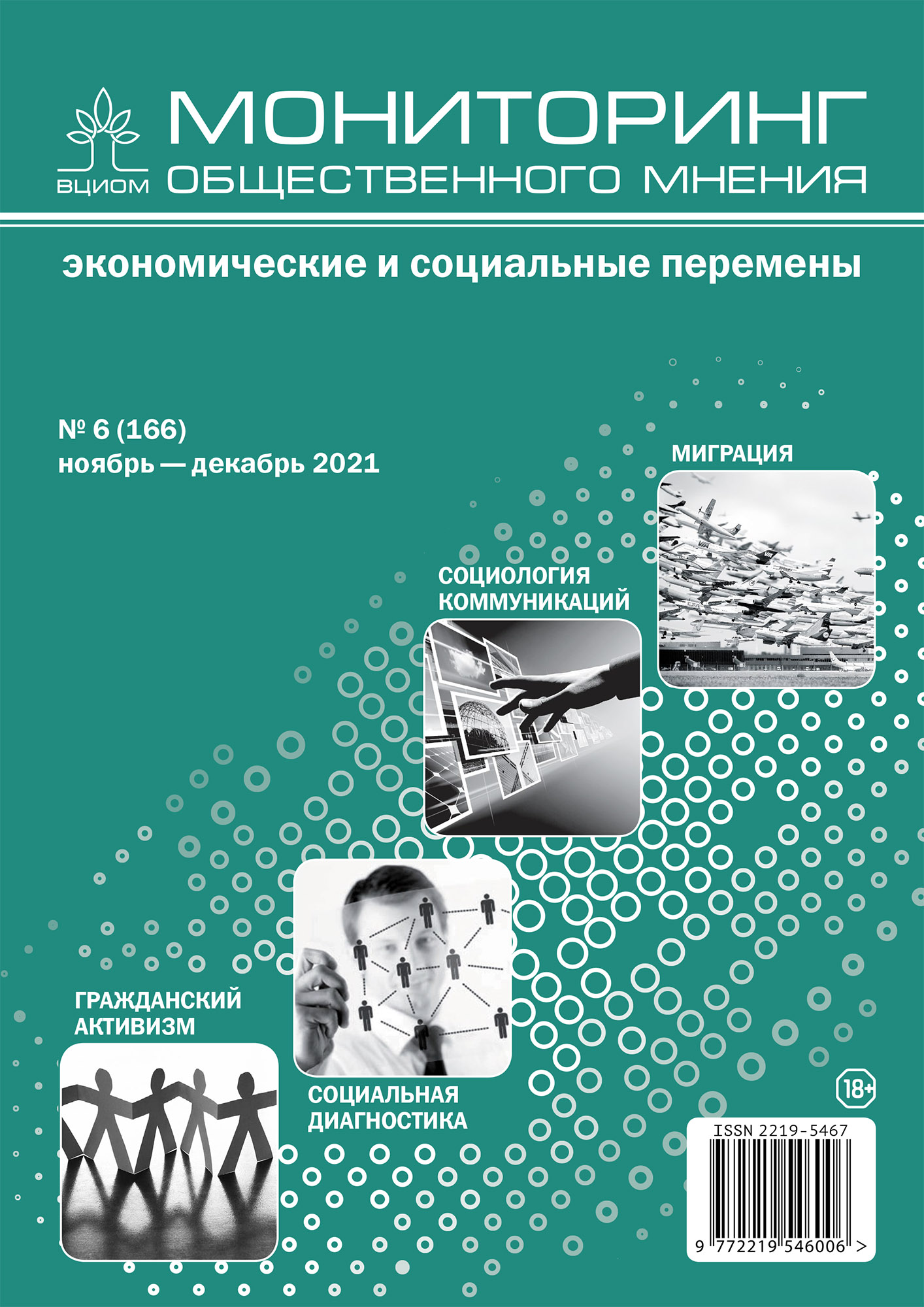Impact of New Information and Communication Technologies on Civic and Political Activism: «Tension Lines» of the Discussion Field
DOI:
https://doi.org/10.14515/monitoring.2021.6.2111Keywords:
ICT, digital communications, new media, social networks, social media, strong and weak ties, civic participation, political participation, traditional and digital civic activism, political protest, political mobilization, political partiesAbstract
The article analyses the major «tension lines» in academic discussions — together with their reflection in the articles of the issue — on the impact of information and communication technologies (ICTs) on the transformation of civic and political participation. The speed of development of the Internet and mobile technologies is so high, and their socio-political effects are so diverse that it leads to contradictions in existing research findings. In this paper, we discuss topics such as the effects of strong and weak ties in the digital communication of Internet users; the convergence of organizational structures in the «physical» world and informal structures of the virtual space, the contradictions between traditional and digital civic activism, etc.
These lines of discussion correspond with the key issues in the academic agenda. Do ICTs bring a new quality to the motivational structures of civic and political participation? Do ICTs stimulate real participation by reducing the costs of communication, or transform it into the least risky forms, giving rise to mass «slactivism»? Do ICTs contribute to the civic dialogue by involving a wider range of individuals (and, therefore, opinions), or lead to fragmentation, to the emergence of «isolated circulation» of opinions within echo chambers?
An overview of the existing answers to these questions provided in the academic literature has allowed the authors to draw several conclusions. A promising trend in the scientific discussion around the impact of ICTs on the transformation of civic / political participation is the transition from «either … or» to «both … and» way of consideration, from contrasting ICTs’ effects to understanding their diversity in multiple contexts. Empirical strategies that involve both real and digital environments (with extensive use of big data in the latter case) will be more in demand. The effectiveness of such strategies can be largely improved by the methods of mathematical and computational modeling.
Acknowledgements. The study was supported by a grant from the Russian Science Foundation (project No. 20-18-00274), National Research University Higher School of Economics.
The authors express their deep gratitude to Valery Fedorov and the VCIOM team for developing and maintaining a high level of standards in sociological, political, and interdisciplinary research, particularly, in the journal «Monitoring of Public Opinion: Economic and Social Changes». We would like to thank Anna Kuleshova, Svetlana Biryukova, Anna Kokareva, Olga Iakimova, Iliya Lomakin and Irina Upadysheva for their partnership and joint work on the special issue.
Downloads
Published
How to Cite
Issue
Section
License
Copyright (c) 2021 Monitoring of Public Opinion: Economic and Social Changes Journal (Public Opinion Monitoring) ISSN 2219-5467

This work is licensed under a Creative Commons Attribution-NonCommercial-ShareAlike 4.0 International License.






